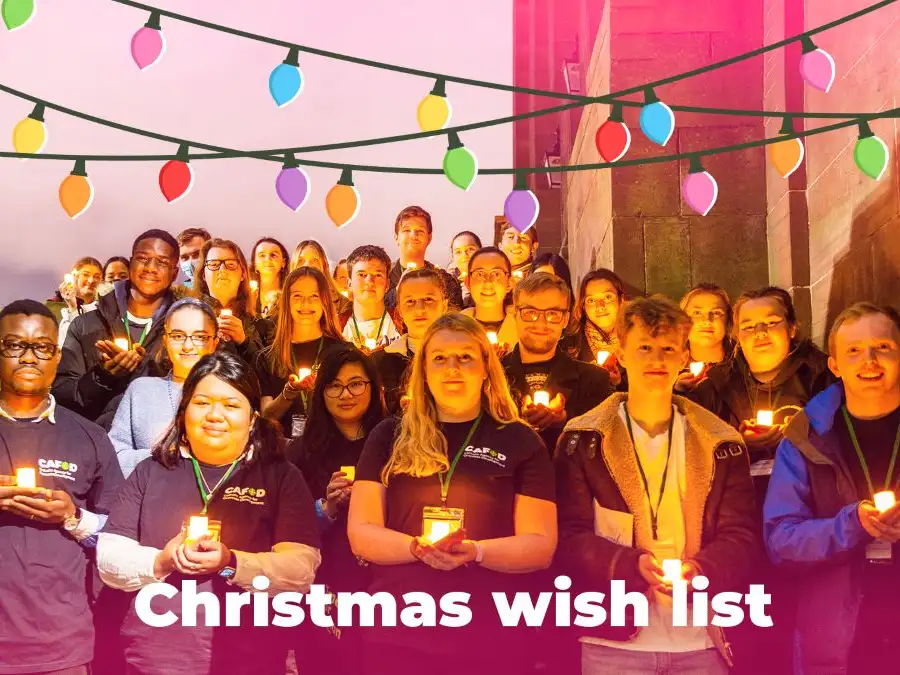

Campaigners hold a prayer vigil at the UN climate talks in Glasgow in 2021
The festive season is nearly upon us. As we look back over another year of CAFOD’s advocacy work challenging the causes of global poverty, here are four things we’d really like for Christmas.
1. An end to the global debt crisis
2025 is a new Jubilee Year, we must use this moment to ensure urgent action is taken to tackle the most acute global debt crisis in history.
3.3 billion people now live in countries that spend more on debt servicing than on health or education and almost 100 countries are in, or approaching, a debt crisis.
In many developing nations, nearly half of the national budget is being consumed by huge repayments on high-interest loans to wealthy banks, institutions and governments. These payments are being made at the expense of building schools and hospitals, and is diverting money away from tackling the climate crisis.
2025 is a Jubilee year which is a time where the Bible teaches us to forgive unmanageable debts. Pope Francis has said that debt cancellation for low-income countries is “More than a question of generosity, this is a matter of justice.”
2. Peace in the Middle East
With many thousands of people having been killed in Gaza and the surrounding region in the past year, a lasting peace for the region is needed more than ever.
The ongoing daily, relentless bombardment in Gaza has taken a horrifying toll on Palestinians. Over 90 per cent of the population have been forcibly displaced, leaving two million people in need of food, water, shelter and protection. Meanwhile, the risk of famine persists, with all residents of Gaza facing catastrophic levels of hunger.
CAFOD continues to call on the UK government to do all it can to bring peace through a ceasefire, humanitarian access and suspending its arms sales to Israel.
3. Money to tackle the climate crisis
Top of the agenda at the COP29 climate talks was agreeing on the amount rich nations would pay towards the ‘climate finance’ pot to help low-income countries cope with the effects of the climate emergency.
Governments at the talks agreed that developing countries hardest hit by the crisis will receive $300bn a year by 2035. But they failed to guarantee this money would be provided as grants, rather than loans. This risks worsening the debt crisis that many countries on the frontline of the climate emergency are facing.
We need governments to commit to raising more funds for climate finance through taxing big polluters, such as fossil fuel companies, and by cancelling unjust debts.
4. Seeds back in the hands of small farmers
Seeds are life. For generations, small-scale farmers have freely swapped and shared a wide variety of seeds to produce food, maintain biodiversity and ensure crops are resilient to climate change. However, their right to choose what seeds they use is increasingly under threat as new laws are introduced across the world.
Institutions like the World Bank are pushing low-income countries to pass laws that promote commercial seeds. Theis restricts farmers’ access to, and use of, their own local varieties of seeds. Farmers need to be able to choose what seeds to use, so they can grow food in a sustainable way. We’ve engaged constructively with the World Bank on this issue this year, but much more needs to be done to get seeds back in the hands of small farmers.
Four myths the food industry wants you to believe – and why they are wrong!
CAFOD stands in solidarity with people across the world by campaigning to tackle the root causes of poverty and injustice. Pope Francis has called for us to put our faith into action by building a fairer world and tackling deep seated injustices in our global social, economic, and political systems.

